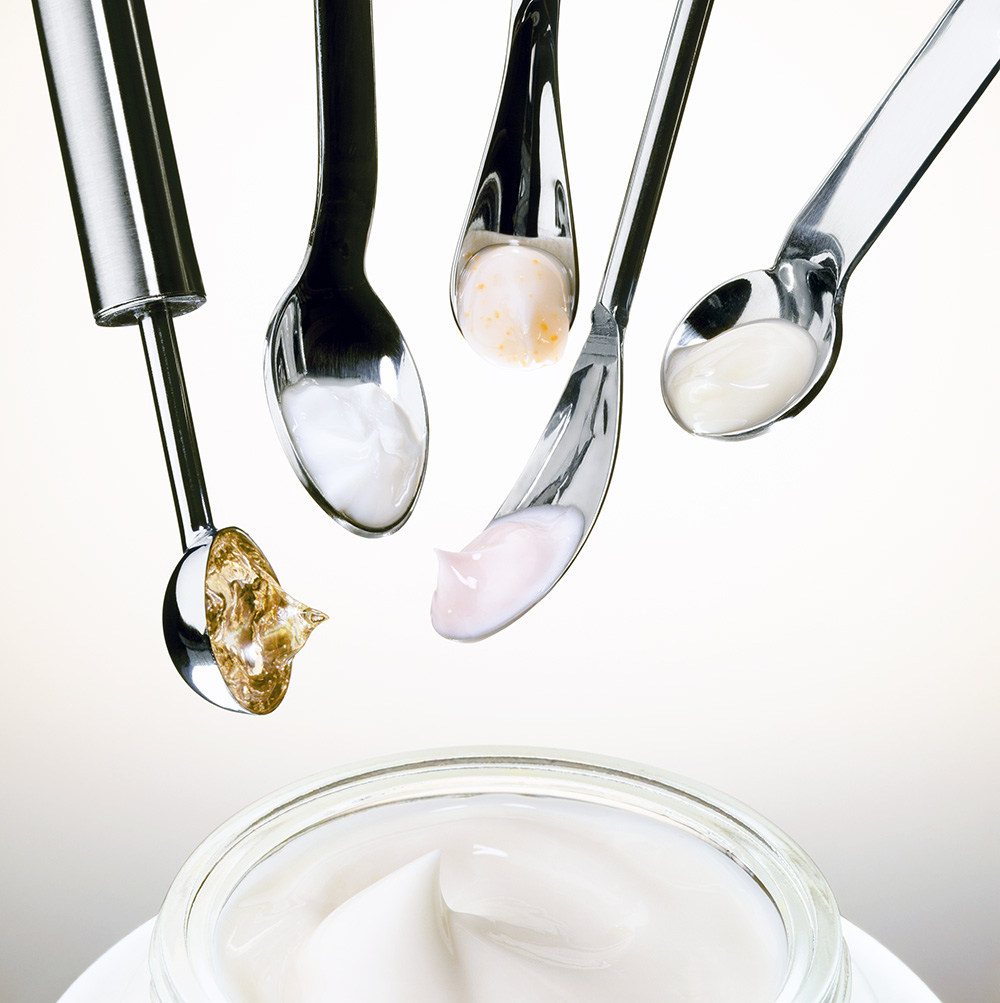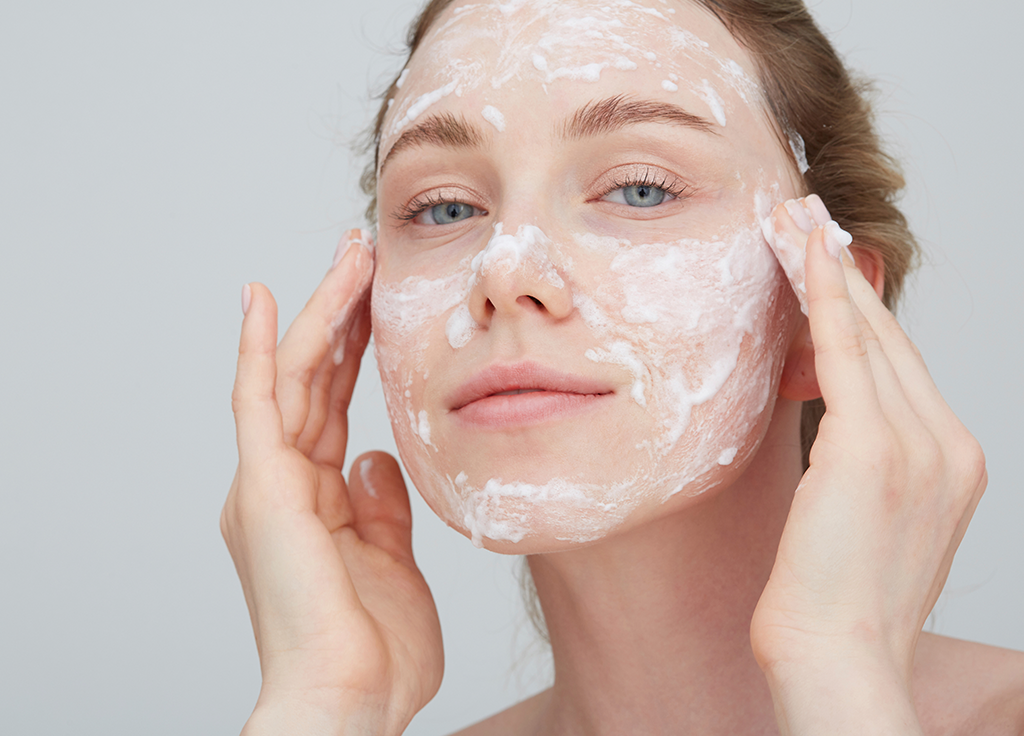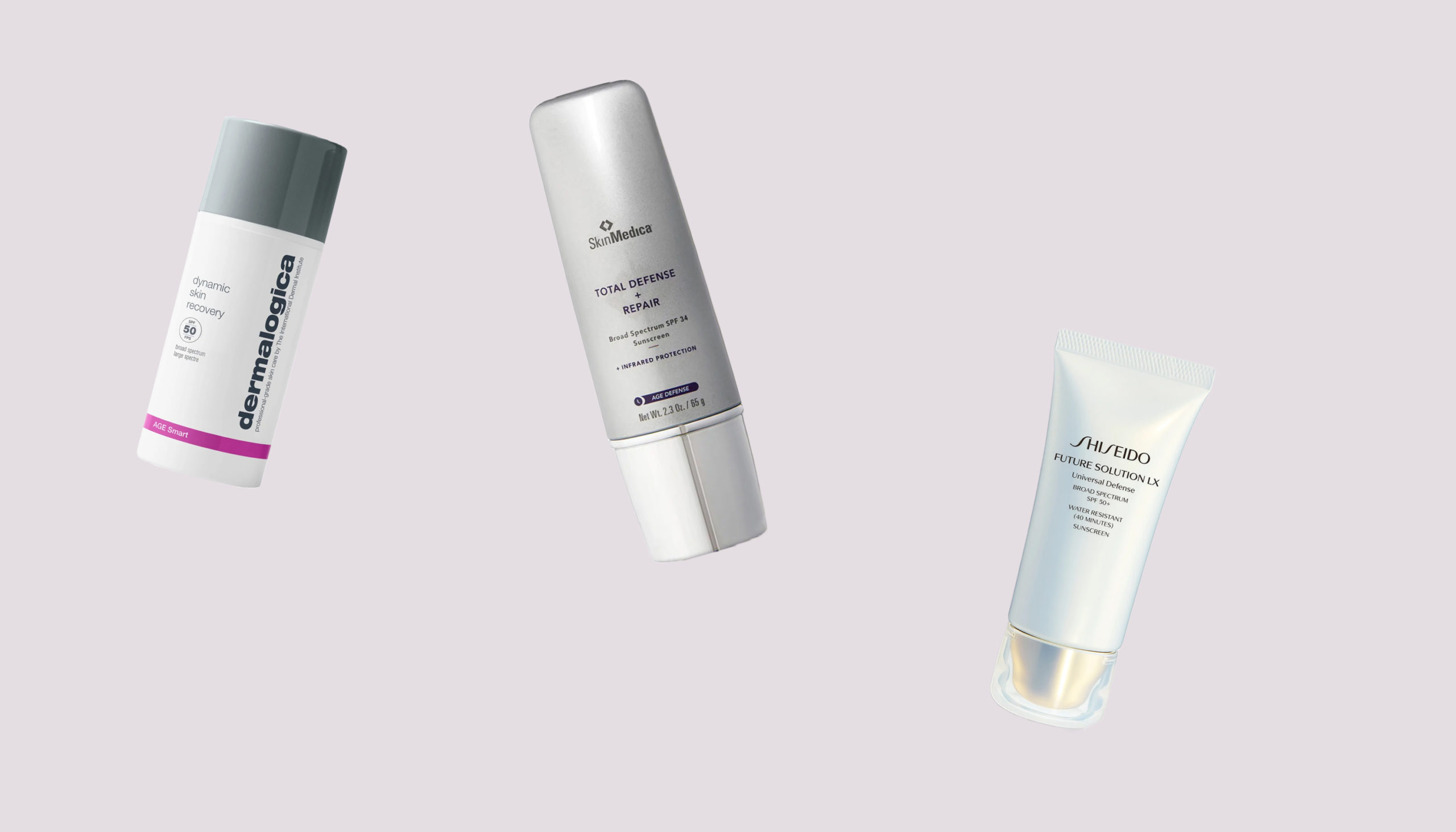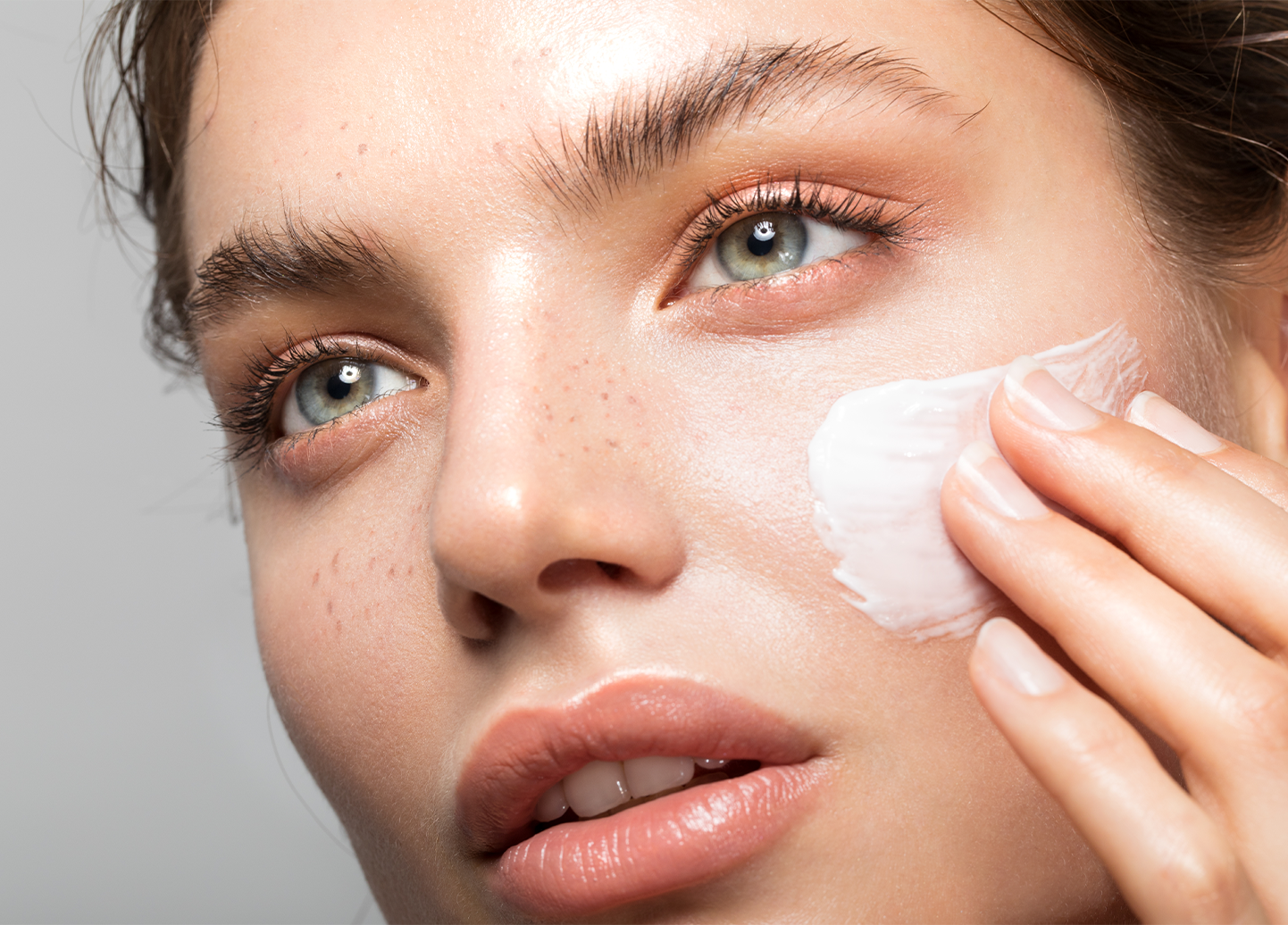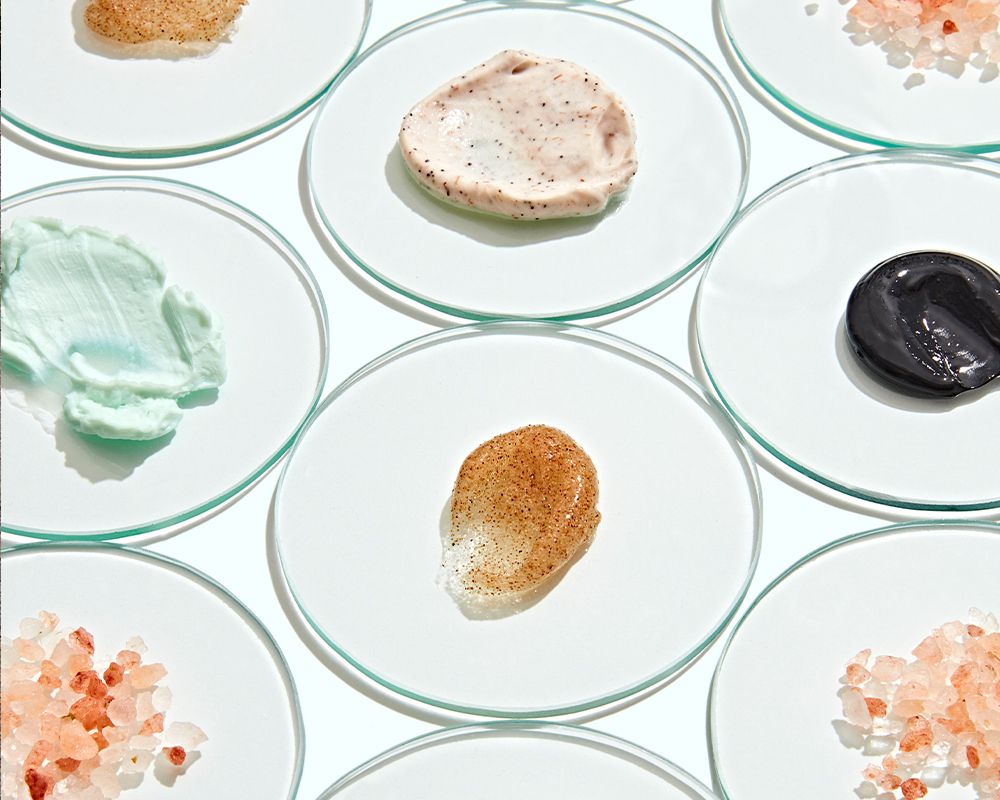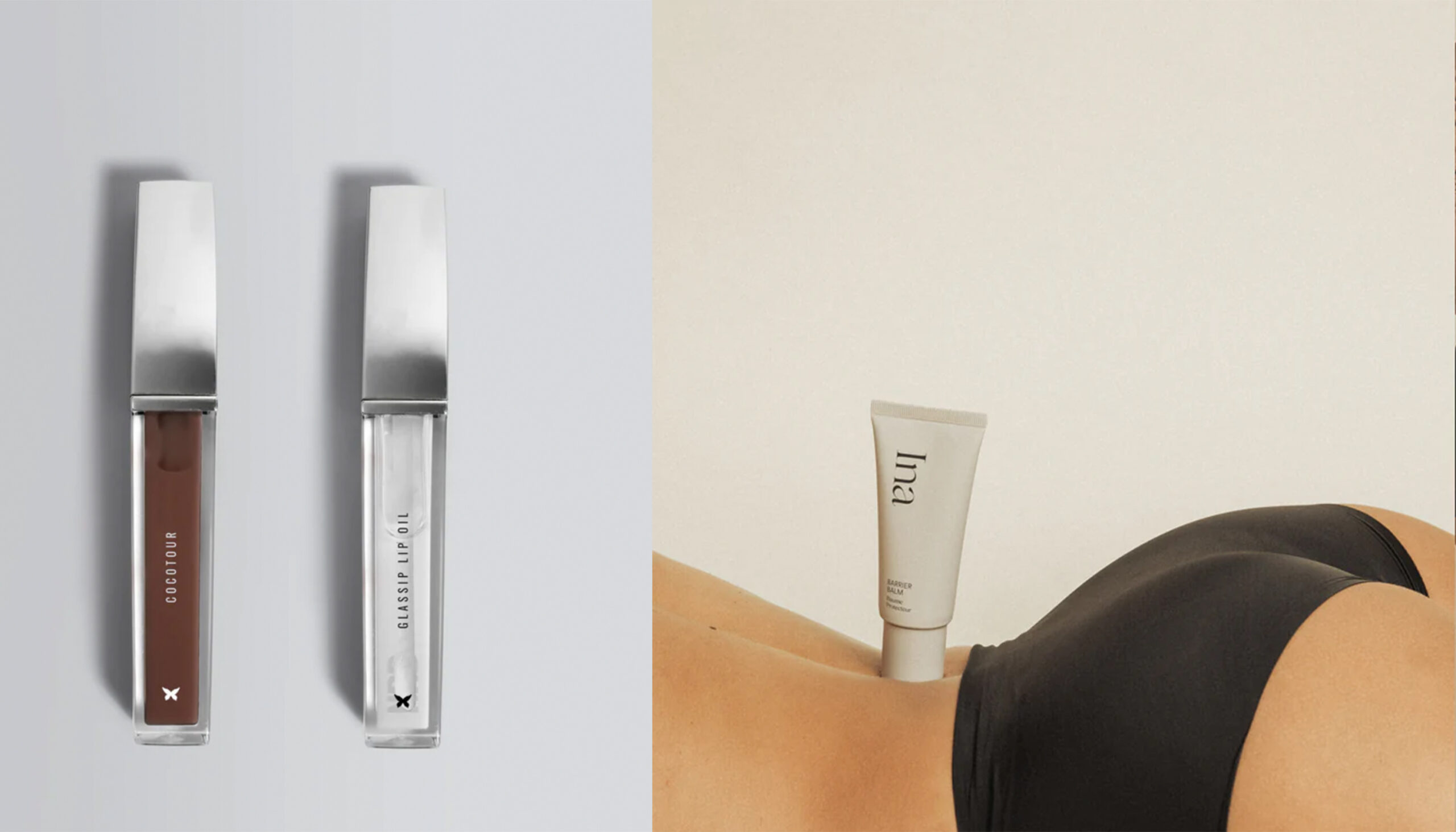
According to a 2011 survey by the International Society of Dermatology, 51 percent of women in the U.S. have “sensitive” or “very sensitive” skin. This wide demographic also includes some of the beauty industry’s top skin care experts—dermatologists and aestheticians. Naturally, we paid especially close attention to the tips and methods they use themselves to keep their skin reactions at bay.
You May Also Like: Are You Allergic to Your Skin Care Products?
Go light on retinol.
“I don’t use a retinol cream or serum alone on my skin—and never a prescription-strength retinol,” says Beverly Hills, CA, celebrity aesthetician Nerida Joy. “I only use an over-the-counter strength and buffer it by mixing it with a non-retinol night cream.”

Eat more vegetables.
“When you have sensitive skin, poor digestion can often exacerbate the problem. I swap out my afternoon coffee for a green juice and eat green vegetables at every meal to promote good digestion and keep skin inflammation, acne breakouts and irritation at bay,” advises New York aesthetician Joanna Vargas.

Promote lymphatic drainage.
“Sensitive skin is usually red, so I always apply product in downward strokes to promote proper lymphatic drainage,” adds Vargas. “This helps to calm skin, reduce redness and take down inflammation.”

Use tepid water only.
“For my sensitive skin, I avoid anything hot and steamy at all costs. No very hot water, no steam rooms, no saunas and no steam facials. Only tepid water hits my face because the hot water breaks down the oils in the protective barrier of the skin. Because the protective barrier in sensitive skin is very fragile already, I don’t do anything that could compromise it further,” says Chevy Chase, MD, dermatologist Elizabeth Tanzi, MD.

Exfoliate sparingly.
“I never use a cleanser that contains any type of scratchy granules or buffing beads,” says Joy. “Even cleaning brushes specifically made for sensitive skin can be too abrasive, and I only use mine twice a week max. When exfoliation is necessary, I use a very gentle ingredient such as papaya enzyme.”
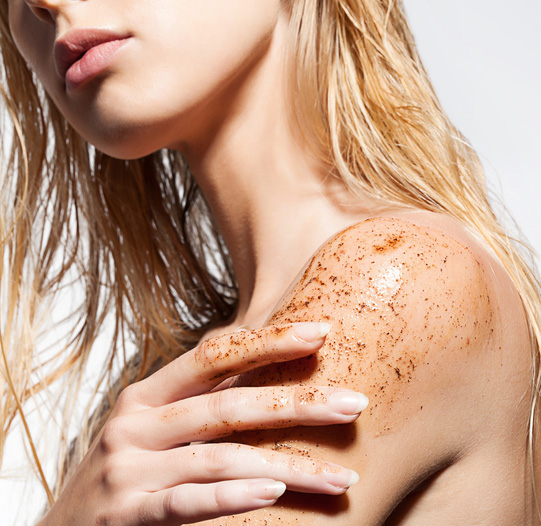
Be patient and stick with what works.
“Taking
care of sensitive skin requires a lot of patience. I choose my skin
care products very carefully and try not to experiment with many
different brands. Constantly
changing one’s skin care leads
to more sensitivity,” says New York dermatologist Jody Levine, MD.
